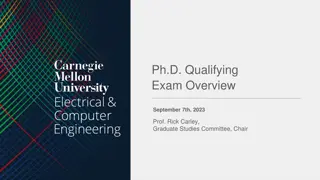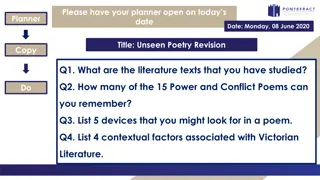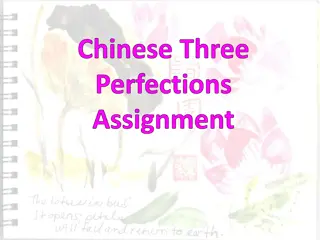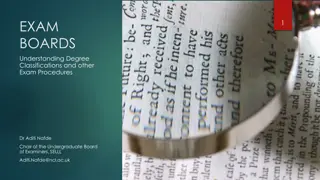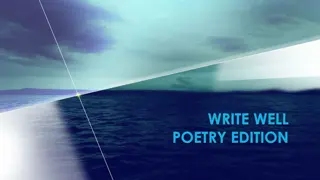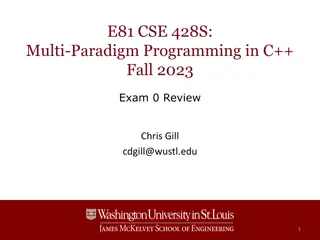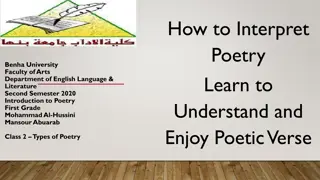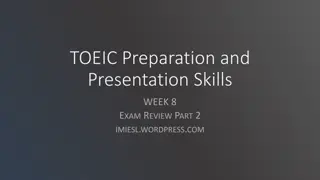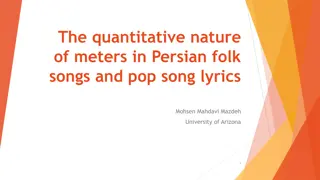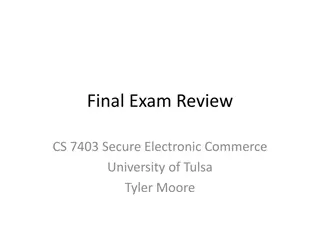Visual Guide to Analyzing Poetry for Final Exam Review
Dive into the world of poetry analysis with this comprehensive visual guide covering tips on analyzing poems, key concepts, and figurative language terms. Explore a detailed breakdown of "To His Coy Mistress" by examining its themes, imagery, and figurative language. Uncover strategies for approaching poems effectively to enhance your understanding and interpretation skills.
Download Presentation

Please find below an Image/Link to download the presentation.
The content on the website is provided AS IS for your information and personal use only. It may not be sold, licensed, or shared on other websites without obtaining consent from the author. Download presentation by click this link. If you encounter any issues during the download, it is possible that the publisher has removed the file from their server.
E N D
Presentation Transcript
Analyzing a Poem Even though poems have verses, they usually still follow rules of punctuation. Look at one sentence or one clause at a time, not one line at a time. Tone- look for words with definite negative or positive connotation (feelings or ideas associated with words) Try to paraphrase in chunks. Rhythm? Fast paced? Slow paced? March? Let images, sounds, smells, etc. enter your brain. Consider: why did the poet write this poem? Theme: is there an overall message about the human experience to take away? Don t miss key words like BUT, or OR, or AND, or IF Who is speaking? It s different than the poet! Audience?
To His Coy Mistress page 693 Coy= shyness that is intended to attract Disingenuous= the opposite of genuine #1 conditional verbs would _____ #7 skip Despondent low spirits
To His Coy Mistress p. 693 Coy shy in order to flirt or get attention. Not a common word. Hyperbole he would praise her eyes for a hundred years, and her forehead for two hundred, etc. It s a love poem until SHIFT BUT at my back I always hear time s winged chariot hurrying near Paraphrase All of your beauty will eventually diminish Allusion A reference to another work of literature, art, history, or current event. The first stanza is packed full
To His Coy Mistress Imagery then worms shall try that long preserved virginity, at every pore with instant fires Understatement- The grave s a fine and private place/ But none, I think, do there embrace. Erotic diction: amorous, devour, sweetness, tear our pleasures Personification though we cannot make our sun/ stand still, yet we will make him run.
Other Figurative Language Terms Consonance An instance in which identical final consonant sounds in nearby words follow different vowel sounds. Ex: blade and blood, flesh and flash Onomatopoeia Words that refer to and mimic sounds Ex: boom, crash Assonance The repetition of vowel sounds in a sequence of words, such as a stanza. Ex: so, lone, echoed, groan Archetype a collectively-inherited unconscious idea, pattern of thought, image, etc., that is universally present in individual psyches. Ex: hero, unhealable wound, temptress
Theme A statement (or two) or a question related to the human experience. NOT ONE WORD NOT A CLICH Example: In some cases, under extreme injustice, shy and otherwise quiet people may actively rebel in order to stand up for themselves. Example: If people feel imprisoned because of the expectations of conformity, they may resort to violent rebellion. Example: Major changes can occur in a person without him or her realizing.
Rhetorical Question A question asked in order to make a point rather than to collect information
Colloquialisms An expression or language construction appropriate only for casual, informal speaking or writing. Ex: I toldja shut up, Ellie I m out, boys.
Juxtaposition Placing two things side by side for the sake of comparison or contrast. HAMLET: To be, or not to be: that is the question: Whether tis nobler in the mind to suffer The slings and arrows of outrageous fortune, Or to take arms against a sea of troubles, And by opposing end them? To die: to sleep
Parable A tale told explicitly to illustrate a moral lesson. They can take the form of drama, poetry, or fiction.
The Metamorphosis Remember me? Take twelve minutes to answer as many of the question on the review sheet as possible. The Metamorphosis begins on page 945 in your textbook Note to Ms. Mullen: Don t forget to show the other PowerPoint, too.
Existentialism Merriam Webster: Existentialism is a chiefly 20thcentury philosophical movement embracing diverse doctrines but centering on analysis of individual existence in an unfathomable universe and the plight of the individual who must assume ultimate responsibility for acts of free will without any certain knowledge of what is right or wrong or good or bad.
Definition Second try Existentialists believe that individuals must take responsibility for their own actions without the certainty of right and wrong/ good or bad from religion, morality, or scientific thought. Humans are SOLELY responsible for their actions. WE ALONE create our own values and give meaning to life. That means the universe is otherwise meaningless and there is no God.
What is the meaning of life? We have to make our meaning!
Positives We are not guided by or given instructions to follow by an outside force of higher power. We are free to follow our own path and make our own choices.
Negatives We are not guided by or given instructions to follow by an outside force of higher power. We are free to follow our own path and make our own choices.
Famous Existentialists Soren Kirkegaard Jean-Paul Sartre Friedrich Nietzsche
Characteristics Anguish we cannot escape our responsibilities Forlornness absence of God Despair lonely Absurdity As humans we find value and meaning in things, but really the universe is meaningless
Surrealism a 20th-century art form in which an artist or writer combines unrelated images or events in a very strange and dreamlike way. The aim was to "resolve the previously contradictory conditions of dream and reality. In response to WWI, following the Dada movement Stream of consciousness- spontaneously writing without censoring thoughts
On your own: Read Mexicans Begin Jogging On a notecard: Your name Tone of the poem Tell me as much as you can about the speaker What is the main idea of this poem?
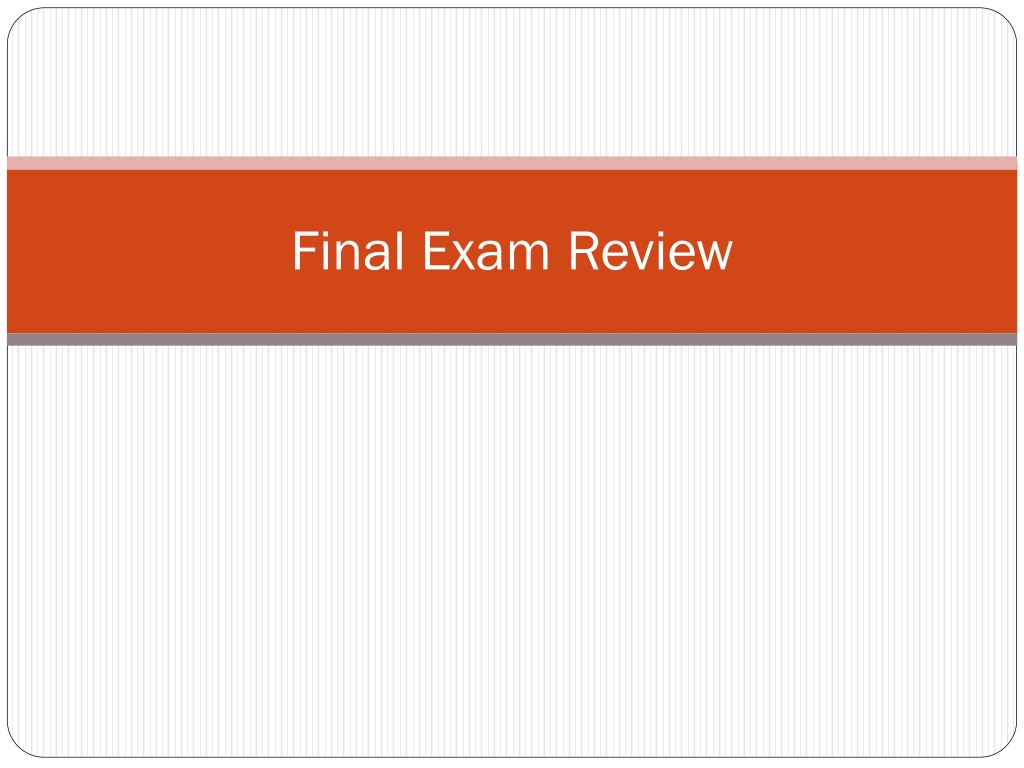

![textbook$ What Your Heart Needs for the Hard Days 52 Encouraging Truths to Hold On To [R.A.R]](/thumb/9838/textbook-what-your-heart-needs-for-the-hard-days-52-encouraging-truths-to-hold-on-to-r-a-r.jpg)


